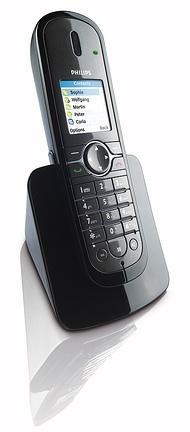Skype without a Computer
Philips is currently developing a Skype phone that will no longer require a personal computer.

This is a big step in addressing one of the biggest challenges of VoIP proliferation in the market. With the Philips VOIP841, all you need is a broadband connection via a router, and you’re set. The same goes for Netgear’s Skype Phone, which was introduced earlier this year.
Will this shift in the winds of technology help increase VoIP popularity in the Philippines? Will VoIP be the next big thing for our country’s ICT infrstructure? Only if VoIP service providers can address the current communications infrastructure of the Philippines.
- Analog Telephones. Our current telephone system works fine the way we need it. If VoIP service providers can target long distance callers, then they’ll have a chance of making it big with the families of 8 million OFWs abroad.
- SMS. Text Messaging has grown to be one of the most popular means of communication in the Philippines. Though intended for SHORT messaging, trust the FilipnoP0et2wrkArndSchPrblm. If VoIP could integrate SMSoIP, now we’re talking.
- Mobility. Mobile people would rather use cellular phones for portability and coverage. This is most useful when you have to move around a lot (ex. sales agent) or if you don’t really have your own office space (ex. laptop-powered workforce). The internet connection requirement currently limits the mobility of VoIP phones. If we could develop a Wireless Metropolitan Area Network…
- E-mail. E-mail is cheap, fast and dialogue is asynchronous. Hmm…
- Telco. With one big telco company running the show for both analog telephony and digital subscriber lines, DSL-dependent services that can eat through their telephony business profits are not really welcome in the ICT ecology.
However, as with most capitalist economies, if there is a need, there will be a supply. Is there a need for VoIP in the Philippines?
If there is, maybe not in the consumer market right now.
If there is none, maybe the government can help in improving the use of our current ICT infrastructure. We might be doing well against our Asian neighbors in terms of tech level, however the advanced technology is limited mainly to foreign companies and their offices here. For instance, Quezon City touts itself as the ICT capital of the Philippines. I don’t think having the most number of call centers in the country is an indicator of ICT-ness from a profitable business perspective. We have a 3-5 year telco advantage among other Asian countries. I hope we could develop programs that take advantage of the benefits of our ICT infrastructure.
//picture borrowed from flickr. thanks.